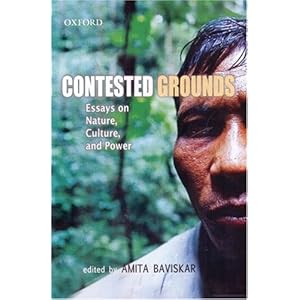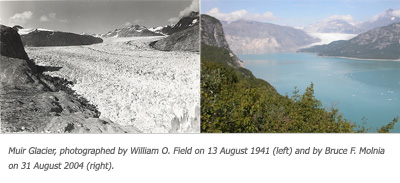....may dreams be fulfilled, new friends met and joy as well as lessons be learn, always with a bright heart and loving smile.... auld lang syne....
30 December 2010
24 December 2010
Merry Winter Holidays!
21 December 2010
Lunar Eclipse
The moon was beautifully coming up behind the clouds. It was a particular night and I felt very drawn to the mysteries of the old. Soon the winter solstice was coming up. Apparently, it was a once in a lifetime opportunity. The next time that the lunar eclipse will appear on the same day as the midwinter day or if you prefer, the winter solstice, are in 2094. The last time it happened was in 1638.
13 December 2010
Sigtuna Winter Fayre
07 December 2010
Enchanted bags....
Imagine to have a bag which does not weight anything and which you can store a lot of things in. Instead of having a magic purse, I try to pack with just essentials. Learning to become less dependent on the materials and more so to the spiritual. Although, I find it of great imagination when enchanted bags pops up in movies and books in the way like it does here:
02 December 2010
Dickens Christmas Carol
In the mid 1800 Dickens very famous "A Christmas Carol" was published. Ever since then the story has been retold through books and movies. In Stockholm it is shown on the theatre Maxim during end of December 2010 to beginning of January 2011.
I have checked through internet, because I remembered I watched a similar tale that drew upon Dickens tale, but instead of finding that, these are what I discovered....
Unknown
01 December 2010
Wall-E
I think it is now time to round up with a suitable movie on the matter... :)
....and here's a teaser:
....and here's a teaser:
Here is a great short version of the movie, nice clips and suitable music.
Reflection of the conference, last part
This is the last post about the conference "Nature, poverty and power: assessing challenges to sustainable development" organised by the Swedish research network Devnet.
-------------------------------------------------------------------------------------------------
It is still one more speaker that I would like to tell about and it is Ms. Baviskar which was a very engaging and wise spokeswoman. Her subject was "connecting struggles over nature and citizenship in India". She was the very first to speak on the conference and it was according to me, the most interesting one and best speaker. The reason why I believe so, was probably (because she was... ;) ) because her talk was summing up every aspect of what I have been studied for the last years. She spoke about refugee studies, urban movements, cultural riots and the struggles over natural resources. She stated that planners need to recognise the experience of displacement to be solved, they need to plan also for the people that migrates from the rural areas to the urban. Someone (a major somewhere?) had apparently said something about that you can't spend more money on the ones who steals from you. She continued to (very wisely) say that if you say like that, then you have not understood and acknowledged the problem. People needs somewhere to live, they need something to do (work, hobbies) - earn a living for themselves and their families. It is important to calculate and target these issues when planning the urban landscapes. Because the lack of access to secure employment and legal housings will create displacements of the newcomers. The consequence will be settlements on the outskirts (shanty towns) with bad housings, poverty, starvation, bad health and sanitation which will result into diseases and vermin. Few religions/faiths would improve of letting this happen...
In Delhi you need to have all legal papers else you are evicted and moved. Not many people has all the necessary documents. The city plans in Delhi has focused more on middle class and not to everyone dwelling and coming to the city, but it is important to plan the urban growth for everyone.
---------------------------------------------------------------------------------------------
---------------------------------------------------------------------------------------------
Read more about her book here.
More about this book here.
Conference reflections, second part
As I started to tell, I took part of a very rewarding two-days conference called "Nature, poverty and power: assessing challenges to sustainable development" organised by the Swedish research network Devnet.
To end my reflections of this participation, I need to bring up two other key note speakers (wrote about the third before) that I had much joy to listen at. Lets start with Ms Asher. Her topic was "wither nature or culture - imaginaries of ethnic movements in Latin America". She started by talking of a conference in Lima earlier this year, which addressed how deeply connected humans are to nature. She showed pictures of offerings and small rites of honouring the nature spirits while opening the conference.
She said that we need to understand the romantic ethnicity of culture while still it is important to be critical when studying this things. Furthermore we (the audience) learned about organisations like "matamba y guasa", black woman that works with food and medical plants to ensure the subsistence and health needs of the community as well as the biodiversity growing in the area. Much of her study was conducted in Colombia.
The lecture continued into an enriched discussion, where we among other things brought up rhetoric questions as what exactly is the significance of an ethnic group and when do we become one? As well as what happens when we start labelling ourselves into a certain folder? When is it good with categorisation and to place everything in a certain pile of information?
In the break I talked with a women that had done a lot of studies about mines in Peru and Ecuador. She told me that in Ecuador it was more acknowledged to refer to "indigenous" groups than in Peru, where people more referred to themselves as "farmers".
Ms Asher brought up the difference in referring to "eachselves" (my word) to "afro displecados" and "afros decendos", which directly translated means displaced Africans and descendant from Africa. The first one can be noticed in Afrodes, an association for displaced afro-Colombians.
Another important note I did from her lecture was that of subsidies, that even if a country in the world decides to subsidies some other country, it may not in the end become as much as it sounds like. The money does seldom come as papernotes and coins (or figures in the bank), but as helicopters and more material things...
I think this is what I would like to say about this certain lecture. I found it most interesting and it was a pleasure to listen to the subject. Thank you.
Labels:
2010,
afro-south americans,
conference,
devnet,
latin america,
Uppsala
"Earth - a visual guide"
On this matter, I would like to recommend a book with beautiful pictures of the world. It is called "Earth: a visual guide" and can be found here.
Illustrative photos - climate change
Ok so lets take an intermezzo from the reflection posts of the conference and inserts some illustrative and beautifully done pictures of the matter.
------------------------------------------------------------------------------------------------------First one out is from OECD's roundtable discussion in New York 2009.
Second picture....
...and the last one kind of connect the other two....
but all of them could generate a great discussion and analysis....
Nature, Poverty and Power
Last week I attended a conference in Uppsala. It was organised by Devnet which is a network for researchers and students in sustainable development. It is financed by Sida and based on Uppsala University and Swedish University of Agricultural Science. Devnet was created in 2008. Last year (2009) I was there with a lot of my fellow master students. We were invited since our lecturer was one of the key note speakers. When I got an invitation this year, I decided to go with a friend of mine since the programme seemed to be promising.
If I compare the conference of this year to the one last year, you could see that it has grown. More people, better planned and organised. Students and researchers had come specially just to attend those two days here in Uppsala. There were people from Italy, Spain, Costa Rica, Brazil, France, India, US, Vietnam, South Africa and many more.
I had decided to attend the second and the sixth parallel session. The first one was during Thursday and was named "community-based and community-driven natural resource management - a tool for poverty reduction and sustainable development". This one I picked to go to since I was curious to know more about it. I think my master programme has focused more on rural development than on the natural resource management, so I figured it might be a good chance to get deeper understanding of concrete examples. This session had a high attendance. Unfortunately had one of the speakers been cancelled. But there was still three other ones.
One of them talked about the management of irrigation in Vietnam, and how to decentralise it from government level to the locals.
Another one discussed the community based organisation of forest management. This lecturer brought in Agrawal a lot, which was an author that we used much in one of our master courses. Many students felt his book was a bit hard to grasp, and that especially that course could have become more educative by bringing in more than one main course literature. Even though I through that course got to know about Elinor Ostrom.
Here is another way to depict the tragedy of the commons....
--------------------------------------------------------------
There was also a researcher talking about his study of small-scale fisheries. I enjoyed to see his illustrative networks of how the fishermen was relating to each others. But many of the audience was asking questions like; how did your research influence the society that you studied? Did you go back afterwards? But if they themselves did not perceive any problems of how they lived, what influence did your study do then? Perhaps it would have been better if you would not have done it? Why did you do your research?
I find this questions of importance of relevance. Not to say the least that perhaps we want to help, but to we do the research to get an examination or a report done or do we do it because we sincerely would like to make a difference? Do we do it because we want to enforce our own perspectives which we believe is the superior one, or do we do it because of learning of others? I have been told that we can never escape ourselves, being objective, we are in some ways always biased and we need to be aware of this. Although I feel very humble and that I still have so much left to learn. I hope I will continue feel like this when I start going to the field.
------------------------------------------------------------------------------------------------
The second day I went on a parallel session called "Cities, marginalisation, rights and citizenships". Many of the speakers were human geographers just like me, but there were also some anthropologists among us. I enjoyed to hear talks about the importance of having your own land and area to live in. We heard about female waste scavengers in Brazil, private land owners in Niger who started their own peri-urban societies by dividing the land. Furthermore, we could listen to different ways of aiding civil society by certain policies...
Even if this session did not had so many people in the audience, I think it was the most interesting and vibrant discussion of all the sessions that I went to. It was nice to hear about settlements and urban space, I miss to study that. I believe rural and urban is so connected, and within my master programme it is so focused on the countryside. Which is interesting of course, but I still lack the discussion of the city dwellers. We talk more about the outskirts of the city and the marginalisation of the people in shanty towns. So it was delightful to meet a lot of human geographers on this conference and hear them talk.
-------------------------------------------------------------------------------------------------------
To round up this post I would like to talk a bit about the key note speakers. We had one that discussed about the importance to knowledge the climate change, this lecturer did unfortunately not generate so much of my interest. Perhaps it was since it felt like a topic spoken of so much, and that he did not need to defend it since among those that I speak with it is more or less a general statement.
For those of my readers that understand Swedish, it was a great article about this a few days ago. It brought up the importance of changing mentality as a way of not apathetic ignoring it, and why some of us perhaps have started to shut our eyes of climate change. By discussing with psychologists, the article stated that people do not pay attention so much because of (among other) following thoughts "it does not happen here" and "we can't see it" since it is happening sucessively so we adapt to the small changes and get blind of the bigger picture. For instance photos and elderly peoples accounts are great to illustrative this. Here is some photos of ice melting and change of glaciers...
Blomstrandbreen Glacier, Norway 1918 and 2002, more info here.
Glacier in Patagonia Argentina, top 1928 and bottom 2004. More photos here.
Himalayas 1921 and 2007, more info here.
Subscribe to:
Comments (Atom)
Visitors
****LIVE YOUR DREAM by CARPE MOMENTUM***





























